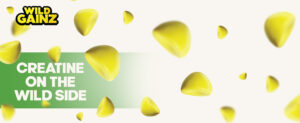2020 will go down in history as the year of the coronavirus aka COVID-19. At present this virus presents many challenges and uncertainties, it has ultimately changed the way of life for many people worldwide.
In these chaotic and no doubt uncertain times, it is important to remain calm and take preventative measures to ensure that you can control what you can. Prevention is always better than cure. Whilst our medical and scientific communities race to find a cure, one preventative we can all do is ensure our diet is as healthy as possible.
Why?
If you do catch COVID-19 or any other cold/flu your immune system is responsible for fighting it off. Prior research has shown that a healthy gut microbiota is directly related to the optimal function of the immune system. Having a strong immune systems improves your ability to fight off pathogens causing viruses and bacterial infections, as well as improving your chances of not developing secondary illnesses such as pneumonia.
The micronutrients which best help to support our immune system are:
Vitamin A, B6, B9, B12, C, D, E
Copper
Iron
Zinc
Selenium
All of these micronutrients, with the exception of vitamin C and iron are essential for antibody production.
Here is a quick breakdown of how each nutrient supports your immune system and the foods we can include to get them.
Vitamin A:
Vitamin A is responsible for many processes in the body including preserving your eyesight, growth and development as well as combating acne to name a few. This nutrient also plays a vital role in maintaining your immune system – including the mucous barriers in your eyes, lungs and gut which help trap bacteria and other infectious agents. It is also necessary for the production and optimal function of white blood cells which help to clear pathogens from your blood stream.
Food sources of Vitamin A include:
Animal products like oily fish, cheese, eggs, and beef. Plant based sources include legumes, wholegrains, nuts and seeds and tofu.
In addition to this some fruits and vegetables contain beta-carotene which can be converted into vitamin A. Beta-carotene rich foods include yellow and orange fruits and vegetables such as pumpkin, peaches, rockmelon/cantaloupe, sweet potato or carrots. Other sources include green leafy vegetables like kale, broccoli, asparagus and spinach.
B Vitamins:
B vitamins are the building blocks for maintain good health and well-being. These vitamins have a direct impact on energy levels, brain function and cell metabolism. B6, B9 and B12 in particular contribute to your bodies first defence in response to a pathogen. They do this by contributing to the production and activity of “natural killer” cells aka large granular lymphocytes (LGL) to remove the infected cells from the body in a process called apoptosis.
Food sources of B vitamins include:
B6 aka pyridoxine is found in cereals, fruits, green leafy vegetables, nuts and animal products like meat, chicken and fish.
B9 aka folate is found in legumes, nuts, seeds, green leafy vegetables and is also added into products like commercial bread flours.
B12 aka cyanocobalamin is abundant in animal products such as eggs, dairy and meat, it is also found in fortified soy milks.
Vitamins C and E:
Both these nutrients help to protect cells from oxidative stress. Oxidative stress occurs when the body is fighting an infection, and leads to the production of free radicals which can cause further damage to your body’s cells and increase inflammation.
Vitamin C in particular fights free radicals by producing a number of specialised cells like lymphocytes, phagocytes and neutrophils as an initiation to the immune response.
Food sources of these nutrients include:
Vitamin C is found in oranges, kiwi fruit, berries, lemons, limes, tomatoes, broccoli and capsicum/bell peppers.
Vitamin E is found in green leafy vegetables, nuts and vegetable oils.
Vitamin D:
Vitamin D is essential for your immune system, acting as a “light switch” in your body turning on and off genes and processes that are needed to maintain health. Your immune cells have Vitamin D receptors. The active Vitamin D is key to “turning the light switch on” to activate key peptides in your immune system that trigger a strong antimicrobial response allowing your body to quickly and effectively fight off invaders before they develop into a full-blown infection.
Sun exposure allows your body to produce Vitamin D, most people just need a few minutes outdoors each day.
Food sources of Vitamin D include:
Fortified milks and margarines, eggs and fish
Copper, Iron, Zinc and Selenium:
Copper and Zinc are essential for the optimal innate immune function, deficiency in either of these metals leads to increased susceptibility to bacterial infection.
Iron helps to kill off pathogens by increasing the number of free radicals that can destroy them. Iron also plays a role in regulating enzyme reactions which are essential for immune cells to recognise and target pathogens.
Selenium works in conjunction with Zinc to act as an antioxidant and reduce damage such as inflammation to the body’s cells which are caused by oxidative stress. This process enhances your immunity.
Food sources of these minerals include:
Copper: dark chocolate, leafy green vegetables, shiitake mushrooms, oysters, nuts and seeds
Zinc: chickpeas, baked beans, nuts like cashews and almonds, oysters, whole grains, milk and many breakfast cereals are fortified with zinc.
Iron: red meat, chicken and fish as well as plant-based sources like wholegrains, legumes, seeds, tofu and leafy green vegetables.
Selenium: Brazil nuts, fish, chicken, eggs, brown rice, seeds and oats.
How to grocery shop to boost your immunity:
A simple rule can help you when purchasing fruits and vegetables at the grocery store, market or fruit shop. The more colourful the fruits and vegetables are, the better.
By maintaining healthy eating habits over time, your able to build a strong immune system.
Eating a wide variety of fruits and vegetables aiming to eat from each colour of the rainbow ensures you’re getting as many health-boosting vitamins and nutrients as possible.
Can supplements help your immunity?
Vitamins and mineral supplements are a relatively easy way to help to fill up the gaps in your diet. However, unless you have a need to be using supplementation, food is the best way to get these essential nutrients.
Why?
Your body is able to absorb and use these essential nutrients more effectively when they come from a dietary source. Some supplements may have side-effects especially when taken before surgery or with other medicines. It is important to avoid taking vitamin E supplements, as there is little scientific evidence showing their effectiveness and they can cause some serious side effects.
Are there other ways I can boost my immune health?
To put it simply, yes! Maintaining good health is related to multiple factors such as your nutrition, the amount of sleep you get each day, how much water you drink and how physically active you are.
Sleep: Sleep plays an important role in your general health and well-being. Adequate sleep is key for keeping your heart, brain and immune system strong as it allows for growth and healing. Sleep is needed for controlling your appetite and weight, as well as attention, memory and learning. Adults should aim for around 8 hours of sleep each night.
Water: Drinking enough water each day helps your body maintain optimal function at a cellular level as well as helps to flush out toxins. Water helps your body to produce lymph which carries white blood cells and other immune boosting cells. Aim for 2L per day, and try to avoid overdoing it with beverages which can make you dehydrated like coffee. A simple way to increase your water intake, besides drinking water is to eat more hydrating foods like celery, cucumber and watermelon.
Exercise: Physical activity has been shown to reduce your chances of developing heart disease, as well as keeping your bones healthy and strong. Keeping active is important during this troubling turbulent time, exercise is key for mood boosting endorphins.
While more research is needed to prove how effective exercise is in illness, some popular theories are: Exercises can cause an increase in the circulation of antibodies and white blood cells, increased circulation means they may be able to detect illnesses earlier, however more research is needed to prove whether these changes help prevent infections.
Physical activity slows down the release of stress hormones like cortisol, which in turn may boost immunity as high stress is a key factor in the strength of your immune system. The brief rise in body temperature during and right after exercise may prevent bacteria from growing similar to the way a fever works.
Aiming for 30 minutes of moderate exercise per day is recommended, this can include exercise such as walking, jogging, swimming, cycling, strength and conditioning exercises like weights, or even household tasks like cleaning windows, raking leaves or pushing a stroller.




